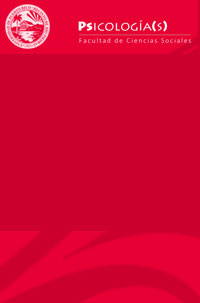Abstract
Community-based work can represent a burden filled with stress, fatigue and burnout for those who assume main roles in such spaces, for example those who serve as community leaders. The levels of stress are triggered and increased by being exposed to traumatic experiences such as atmospheric events, like hurricanes, earthquakes and landslides, to name a few. The effects caused by stress and burnout can be experienced both physically and emotionally. Having the tools and skillset to handle these types of situations are necessary in order to fully perform the functions and responsibilities that this type of work entails. Knowing when to step back and taking time for self-care, are a few of the options that help mitigate the adverse effects that community-based work might represent. Throughout this work we lay out the effects that the community-based work might cause and provide different alternatives to manage these situations.
References
Barba, C. (2011). Revisión teórica del concepto de cohesión social: hacia una perspectiva normativa para América Latina. 67-89. http://biblioteca.clacso.edu.ar/clacso/clacso-crop/20120328120445/4.revision_barba.pdf
Campos Méndez, R. (2015). Estudio sobre la prevalencia de la fatiga de la compasión y su relación con el síndrome de «Burnout» en profesionales de Centros de mayores en Extremadura. http://dehesa.unex.es/bitstream/handle/10662/3087/TDUEX_2015_Campos_Mendez.pdf?sequence=1
Campos-Vidal, J. F., Cardona-Cardona, J., & Cuartero-Castañer, M. E. (2017). Afrontar el desgaste: cuidado y mecanismos paliativos de la fatiga por compasión. Alternativas. Cuadernos de Trabajo Social, 24, 119-136. https://doi.org/10.14198/ALTERN2017.24.07
Covas, N. (2014). Traumatización vicaria y catástrofe: una realidad poco conocida. 1-18. https://psicologosemergenciasbaleares.files.wordpress.com/2017/10/tfg_covas_martorell_neus.pdf
Cruylles, S., Rolón, M., Sabaté, N., Kim, C., Alsina, Y., & Carrión, V. G. (2020). Intervención temprana tras los terremotos de Puerto Rico en enero de 2020: resiliencia, prevención y promoción de la salud mental infantojuvenil. Revista De Psiquiatría Infanto-Juvenil, 37(2), 23.29. https://doi.org/10.31766/revpsij.v37n2a3
D‘Angelo-Hernández, O. (2004). ¿La autogestión local como vía para la transformación social? Revista Temas, 37(1), 1-36. http://bibliotecavirtual.clacso.org.ar/Cuba/cips/20120824100251/angelo10.pdf
Deza-Villanueva, S. (2013). Intervención con mujeres víctimas de desastres naturales. Revista Institucional de la Universidad Femenina del Sagrado Corazón Centro de Investigación, 18(1), 9-20. https://doi.org/10.33539/consensus.2014.v18n1.950
Ferrari, R. Á., Cosentino, A. C., & Depaula, P. D. (2017). Intervenciones psicológicas para víctimas de catástrofes. Revista Digital Universitaria del Colegio Militar de la Nación, 15(42), 1-10.
García, M. (2014). El apoyo psicológico en catástrofes, crisis y emergencias. Sanidad Militar, 70(3), 142-143. https://dx.doi.org/10.4321/S1887-85712014000300001
García-López, G. (2015). Recuperar los comunes para un país vivo; perspectivas desde la lucha contra el despojo y por la autogestión comunitaria en Casa Pueblo, Puerto Rico. Ecología Política 49. 51-60.
García, F., Jaramillo, C., Martínez, A. M., Valenzuela, I., & Cova, F. (2014). Respuestas psicológicas ante un desastre natural: estrés y crecimiento postraumático. Liberabit, 20(1), 121-130. http://www.scielo.org.pe/scielo.php?script=sci_arttext&pid=S1729-48272014000100011&lng=es&tlng=es.
González, F. (2016). Los mecanismos sociales y su relación con la distinción micro-macro. Cinta Moebio, 55, 16-28.
Franza, F., Del Buono, G., & Pellegrino, F. (2015). Psychiatric caregivers stress: clinical implications of compassion fatigue. Psychiatria Danubina, 27(1), 321-327.
Ley para el Desarrollo Integral de las Comunidades Especiales de Puerto Rico, Ley Núm. 1 del año 2001. https://www.lexjuris.com/lexlex/leyes2001/lex2001001.htm
Manstead, A. (2010). Social Psychology of Emotion. En R.F. Baumeister & E.J. Finkel (Eds.), Advanced Psychology: The state of the science. 101-137. Oxford University Press. http://citeseerx.ist.psu.edu/viewdoc/download?doi=10.1.1.472.9611&rep=rep1&type=pdf
McCann, L. & Pearlman, L. (1990). Vicarious traumatization: a framework for understanding the psychological effects of working with victims. Journal of Traumatic Stress, 3(1), 131-149.
Montero, M. (2010). Fortalecimiento de ciudadanía y transformación social: área de encuentro entre la Psicología Política y la Psicología Comunitaria. PSYKHE, 19(2), 51-63.
Moreno, B., Carmona, I., Blanco, L., & Meda, R. (2013). Trauma y trabajo: el estrés traumático secundario. Salud laboral: riesgos laborales psicosociales y bienestar laboral. Pirámide.
Musito, G. & Buelga, S. (2004). Capítulo VI: Desarrollo comunitario y potenciación. Introducción a la Psicología Comunitaria, 167-194.
Nelson, G., Prilleltensky, I. (2005). Community and Power. Community Psychology: In Pursuit of Liberation and Well-Being. Palgrave MacMillan.
Ortiz-Torres, B. (1999). El empowerment como alternativa teórica para la psicología de comunidad en América Latina. Revista Interamericana de Psicología, 33(2), 46-66.
Páez, D., Fernández, I., & Martín Beristain, C. (2001). Catástrofes, traumas y conductas colectivas: procesos y efectos culturales. En C. San Juan (Ed.), Catástrofes y ayuda en emergencia: Estrategias de evaluación, prevención y tratamiento. Icaria. 85-148
Portnoy, D. (2011). Burnout and Compassion Fatigue: Watch for the Signs. Health Progress, Journal of The Catholic Health Association of the United States. https://www.chausa.org/docs/default-source/health-progress/burnout-and-compassion-fatigue---watch-for-the-signs-pdf.pdf?sfvrsn=0
Rivera, A., & Villegas, S. (2020). Grupos comunitarios: primeros respondedores en emergencias. Metro. https://www.metro.pr/pr/noticias/2020/06/06/grupos-comunitarios-primeros-respondedores-emergencias.html
Rodríguez-Espinosa, H., Ramírez-Fómez, C. & Restrepo-Betancur, L. (2016). Nuevas tendencias de la extensión rural para el desarrollo de capacidades de autogestión. Corpoica, Ciencia y Tecnología Agropecuaria, 17(1), 31-42.
Rojas-Andrade, R. (2013). El liderazgo comunitario y su importancia en la intervención comunitaria. Psicología para América Latina 23, 57-76.
Smith, M., Segal, J., & Robinson, L. (2019). Burnout prevention and treatment. HelpGuide. https://www.helpguide.org/articles/stress/burnout-prevention-and-recovery.htm
Substance Abuse and Mental Health Services Administration (SAMHSA). (2014). Disaster Behavioral Health Responders: Compassion Fatigue, Stress, Cultural Awareness and Substance Abuse. https://issuu.com/nibbana/docs/disaster-behavioral-health-responde
Zeidner, M., Hadar, D., Matthews, G. & Roberts, R. (2013). Personal factors related to compassion fatigue in health professionals. Anxiety, Stress & Coping: An International Journal, DOI:10.1080/10615806.2013.777045

This work is licensed under a Creative Commons Attribution-NonCommercial-NoDerivatives 4.0 International License.
Copyright (c) 2022 Psicologías

